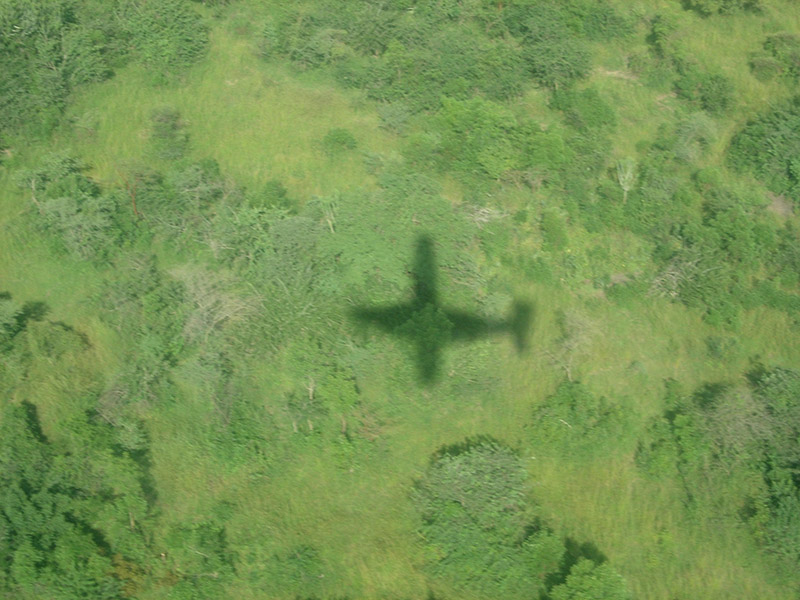Prime Minister Sheikh Hasina is a backward-looking leader
Bangladesh's elections were neither free nor fair on 30 December. The Awami League (AL) of Prime Minister Sheikh Hasina Wajed and its allies won 257 of 300 seats in parliament. Sheikh Hasina's rule has become increasingly authoritarian in recent years. Part of the problem, however, is that the opposition alliance lacks credibility as well.
Bangladesh is an unusual country. On the one hand, important development indicators show that it has been making considerable progress. Infant mortality rates are comparatively low and have kept dropping in recent years, whereas the literacy rate is high and keeps rising. Economic growth has amounted to about six percent for many consecutive years.
On the other hand, Bangladesh deserves its reputation for corruption. Poverty is still widespread, and climate change is likely to make things worse in its low-lying delta landscape. International human-rights organisations express vehement criticism of Sheikh Hasina, and so do Bangladeshi civil-rights campaigners. Her government clamped down on protests last year, journalists’ freedom of expression is restricted, and some opponents of the government have “disappeared”. International media report that the recent elections were manipulated.
Of course, Sheikh Hasina denies that governance is flawed in any way and claims that her government brought about the developmental success. The truth, however, is that her government did not block positive development, but it did not manage to guide it well either. Bangladesh has benefited from the fast expansion of garment production and other export industries, but with better infrastructure and less corruption, progress might have been even more impressive. At the same time, the downsides of fast growth are evident, for example in permanent traffic congestion and dramatic air pollution in the capital city of Dhaka. Obviously, the Bangladeshi government has failed to learn any lessons from the experience of other Asian countries, where growth took off earlier.
The Awami League will now be in power for a third consecutive term. It is responsible for the shortcomings. In 2013, moreover, the collapse of Rana Plaza, a factory building in the Dhaka agglomeration, happened on its watch, and it was only the worst of several industrial accidents. Obviously, business is not regulated well.
Sheikh Hasina is actually not a forward-looking politician. She keeps fighting the battles of the past. At the personal level, her attitude is easily explained. Her father Sheikh Mujibur Rahman was Bangladesh's independence leader, but was killed in a military coup in 1975. Her entire family, with the exception of herself and one sister, was assassinated too.
The country's main opposition party, the BNP, was started by Ziaur Rahman, an army officer, who was promoted after the coup of 1975 and, in 1977, became president himself. He was murdered in yet another coup in 1981, and the party's leader is now his widow Khaleda Zia. It is easy to see that the two women do not consider one another as mere political opponents. They are bitter enemies.
Khaleda was found guilty of corruption and is serving a prison sentence. She served as prime minister from 1991 to 1996 and from 2001 to 2006. Her track record was certainly not better than Sheikh Hasina's. Her party's close cooperation with Islamist fundamentalists and people who supported the Pakistani military during the liberation war are irritating. Yes, the AL has become an oppressive political party that shows too little respect for democratic principles, but the BNP’s character is probably even more authoritarian.
I think that very many Bangladeshis simply do not consider the BNP a viable alternative. I have been to Bangladesh several times in the past 30 years, observing the country's politics continuously. If I were Bangladeshi, I would have probably abstained from voting this time since I certainly would not want to live under BNP rule.
That said, I do not doubt that the December elections were “farcical”. That is how Kamal Hossain assesses the matter. He is a highly respected lawyer, and he served as a cabinet minister under Sheikh Mujib after the independence war. He is a defender of human rights and a proponent of secular democracy. In the elections, he led the opposition alliance, the biggest party of which is still the BNP.
Kamal Hossein left the AL in the early 1990s after falling out with Sheikh Hasina and went out to start a party of his own, the Gono Forum. He is an impressive person, but he only formed his alliance with the BNP weeks ahead of the election. A former ally of Sheikh Mujib, he is living proof that his daughter Sheikh Hasina has no monopoly on representing the legacy of the freedom struggle, but his coalition with the BNP remains awkward. His criticism of Sheikh Hasina's autocratic attitudes is entirely valid, but there is reason to doubt that he would have been able to control a BNP-dominated government. It seems more likely that the BNP would have controlled him in the long run – or replaced him fast.
Bangladesh has almost 170 million people. Half of them are younger than 26. They want a better future. One of the demands of the recent youth protests was equal opportunities for all, rather than privileges for the descendants of freedom fighters. Unlike the prime minister, the young generation is not obsessed with the traumatic past. While many of the youngsters might appreciate Kamal Hossain personally, they certainly did not expect much from the BNP.
According to international newspapers, 17 people were killed on election day. That number is unacceptably high. However, there has not been serious unrest since. I think it shows that, while Bangladeshis are not enthusiastic about the AL, most of them neither expected change nor wanted to see the BNP back in power.












